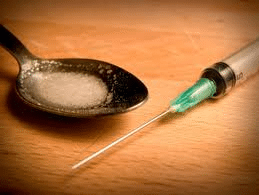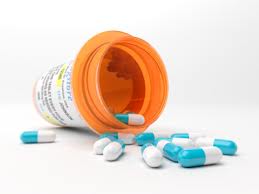There are many different types of drugs users, different “levels” of substance abuse, chemical dependency or addiction. Alcoholism or addiction is often defined by Twelve Step fellowships such as Alcoholics Anonymous or Narcotics Anonymous as a physical allergy (an adverse reaction to substances), a mental obsession and a spiritual malady or a spiritual disconnect. The medical community defines addiction as “a primary, chronic disease of brain reward, motivation, memory and related circuitry. Dysfunction in these circuits leads to characteristic biological, psychological, social and spiritual manifestations. This is reflected in an individual pathologically pursuing reward and/or relief by substance use and other behaviors. Addiction is characterized by inability to consistently abstain, impairment in behavioral control, craving, diminished recognition of significant problems with one’s behaviors and interpersonal relationships, and a dysfunctional emotional response. Like other chronic diseases, addiction often involves cycles of relapse and remission. Without treatment or engagement in recovery activities, addiction is progressive and can result in disability or premature death.” This definition comes from the records of the American Society of Addiction Medicine (https://www.asam.org/for-the-public/definition-of-addiction). Psychology Today defines addiction as “a condition that results when a person ingests a substance (alcohol, cocaine, nicotine) or engages in an activity (gambling) that can be pleasurable but the continued use of which becomes compulsive and interferes with ordinary life responsibilities, such as work or relationships, or health. Users may not be aware that their behavior is out of control and causing problems for themselves and others.” (https://www.psychologytoday.com/basics/addiction) However, this level of “addiction” is not the only reason that people enter treatment. Just because a person is having drug or alcohol issues, is abusing substances or is chemically dependent does not necessarily make them a “drug addict” or an “alcoholic”. However, someone that is PHYSICALLY addicted to a particular substance (or numerous substances) will certainly need to enter treatment in order to then be detoxed from substances. A medically supervised detox is the safest and most comfortable way to be freed from the physical dependence of drugs and/or alcohol. Many substances can by physically addicting. People can become physically dependent or addicted to alcohol. Benzodiazepines like Xanax or valium can often be physically addicting. However, for the moment, let’s take a look at the epidemic hitting closest to home in our great state of Maryland and the surrounding areas: opiates and the overwhelming services a opiate detoxification.
Opiates are narcotics derived from poppy plant. They can be natural or synthetic. The most common types of opiates are pain killers such as Oxycodone or OxyContin or street drugs like heroin. Baltimore has always been known for it’s heroin epidemic. And for many years now, heroin has been spreading out of Baltimore City to many areas in Baltimore County such as Towson, Pikesville, Owings Mills and Catonsville or reaching further out to such areas as Carroll County, Howard County and Harford County. Over the last 15-20 years, an epidemic of stronger prescription narcotics has also taken hold of area residents. Addictions to prescription medications cast a wider net than illegal drugs such as heroin. The elderly, house wives, adolescents gain wider access due to ignorance, accessibility or lack of the type of stigma that “street drugs” carry. Many people either are unaware that these pain killers are as dangerous and addictive as heroin or understand the dangers but justify using pain killers with excuses like “at least I’m not getting them from the street”, “pills are less dangerous because I know what’s in them” or the famous “But at least I’m getting them from a doctor”. These issues cannot be ignored and due to the increasing use and abuse of opiates, opiate detox is in high demand throughout Baltimore City, Baltimore County and surrounding areas throughout Maryland, Delaware, Pennsylvania, Virginia and Washington, D.C.
Why do people physically addicted to opiates need a medically supervised detox? Well, the first reason is because opiate withdrawal is painful. Very very painful. Very very very painful. Think of the flu. Now think of the worst flu you’ve ever had. Now multiply that by 100. Opiate withdrawal refers to the multitude of symptoms that occur in a person shortly after they stop using opiates after a period of heavy or prolonged use (anything more than a few days in a row). Symptoms include, but are not limited to: Horrible headaches, nausea, vomiting, diarrhea, constant runny nose, consistent tearing, high anxiety, agitation, insomnia, hot sweats, cold sweats, terrible muscle aches. Now roll that fine list of symptoms into one, let it play out over the course of 4-7 days with the person often experiencing them in repeated cycles. Over and over and over again. This pretty picture doesn’t even begin to account for the emotional or mental or psychological aspect of the process. So yeah, opiate withdrawal sucks. And the fear of this pain of withdrawal is often a motivating factor as to why people continue to use opiates, long after they begin to experience fairly large or negative consequences of their drug use. That fear of withdrawal will keep an opiate addict using for many, many years. So a medically supervised opiate detox is the best way to help someone get off opiates and begin their journey of recovery.
And here’s an honest piece of advice for any opiate addict that may be reading this or a family member of an addict who may be reading this: THERE IS NO PAINLESS, EASY WAY TO GET OFF OPIATES! How arrogant of a person to think “I’ve been using heroin or pain killers for so many years, but I want to snap my fingers and get off this powerfully addicting substance. Oh, and I’d like to do it with no pain. By tomorrow.” Any person that tells you that an opiate detox is absolutely pain free is lying to you. Any doctor that offers you a magic pill is lying to you. Medications like Methadone or Suboxone are excellent for reducing withdrawal symptoms. They are excellent drugs for helping a person physically addicted to opiates to get off those opiates and detox as comfortably as possible. But let’s get something straight: Switching up a heroin addiction or an OxyContin addiction for a methadone program or a Suboxone maintenance program is simply trading one addiction for another, trading a physically addicting substance that gets you high for a physically addicting substance that keeps you from ever feeling sick from withdrawal. Because that’s all maintenance programs are: Another physical addiction, just legally prescribed and without the euphoric effects. Yes, maintenance programs are an easier, softer way. And let’s also be clear: it’s understandable that such a way would look convenient or easier for an addict. It makes perfect sense if you ask a heroin or a pain killer addict, terrified of going through withdrawal, if they would prefer to take a pill everyday that would keep them from getting sick rather than having to experience some discomfort from withdrawal that they would choose the pill. It makes sense. And you can talk all you want about “harm reduction” or nonsensical statistics that were created by studies that were financed by the very drug companies that manufacture these drugs: Maintenance programs are simply trading one physical addiction for another. Have you ever tried to get off long term methadone ?!?! It’s as bad if not worse than any other opiate withdrawal! Try detoxing off long-term Suboxone maintenance: It’s not easy, and often those initial 4-7 days of a heroin or OxyContin withdrawal are prolonged over weeks and months. Sure, an addict may not be committing crimes while on these drugs. They may not be placing themselves in dangerous situations to acquire these legal alternatives. They may not be robbing or stealing for their Suboxone or methadone. But make no mistake: If they showed up one day and their suboxone doctor had suddenly gone out of business, if they felt even the slightest hint of withdrawal symptoms, they’d be down on Park Heights and Belvedere copping on the corner quicker than you could say “harm reduction”. And yes, for certain people, maintenance programs may be the best alternative. But that is a SMALL sample of the population currently on these medications. You can use all the smoke and mirrors you’d like to posture that long-term medical maintenance is the solution for opiate addiction. But that’s what it is: Smoke and mirrors. Drugs like methadone or Suboxone are excellent for detoxing from opiates, but long-term maintenance is no different than any other opiate addiction: A patient is physically dependent on a drug to function. They need that drug to wake up and get out of bed and go to work. They need that drug to get through the day. They need that drug to eat dinner and go to sleep. And if that drug was suddenly taken away from them, it would have the same effect on them as a heroin addict having heroin taken away: They would get sick and quickly revert to the things necessary to do to acquire anything that they could take that would make them feel better. We understand why someone addicted to heroin or prescription pain killers would choose a medical maintenance program over detox and treatment, but we also know from experience that the greater benefit, happiness and contentment resides in a life free of drugs. And we believe that every person deserves that option.
Here at Maryland Addiction Recovery Center, we believe that telling a patient addicted to opiates that Suboxone maintenance is the answer is selling that person short. We believe that you deserve better. We believe you are a person, deserving of a fulfilling happy life, not just a number that we give a cup of pills to and say “come back tomorrow.” We believe that doctors and treatment centers that substitute one drug for another are just misinformed or are just looking at the problem from a medical perspective. We truly believe they are trying to help and that their hearts are in the right place, but we feel their methods are outdated, old-fashioned or simply do not account for the human aspect and the psychological aspect of addiction. We feel there is more. We feel the patient is worth more. We feel YOU are worth more. We feel quality of life is the goal, not just not using heroin or opiates. Just not getting high is not the goal. A happy mentally and emotionally fulfilling life is the goal. We feel that holistic recovery must take place. The whole person needs treatment to improve their life, not just the physical addiction piece of the puzzle. We believe the patient deserves the best opportunity to get off drugs and stay off drugs, not just substitute one drug for another. Because of this, we offer a medically supervised opiate detox in Towson, Maryland as a vehicle for getting patients opiate free. And every patient is different, so we approach every patient differently. Opiate detox and substance abuse treatment cannot be a cookie-cutter, one-size-fits-all approach. At Maryland Addiction Recovery Center, our Medical Director meets with a patient suffering from an opiate addiction and assesses and evaluates them and then suggests the best opiate detox treatment protocol for them. We offer a Suboxone detox protocol. For those patients that fit the criteria, we offer Vivitrol, naltrexone for extended-release injectable suspension (www.vivitrol.com). These treatments offer the best option to give an opiate addict the safest and most comfortable opiate detox available under the care of a medical professional and in a timely manner so that they then can go through our PHP or IOP treatment with a clear head. There is no cure all, no magic pill for opiate addiction. Withdrawal isn’t fun, but let’s be honest: If you’re trying to get into an opiate detox centers in Maryland and a drug and alcohol treatment program, the fun probably ended a little while ago anyway. We believe that a medically supervised opiate detox in our Towson, Maryland location offers the safest, most comfortable option to aid a patient going through withdrawal to come out the other side completely drug free and not dependent on any substances to function. And we believe that everyone deserves that chance.
If you or someone you know is suffering from opiate addiction and is in need of a medically supervise detox in Baltimore or anywhere in Maryland, please call Maryland Addiction Recovery Center at (410) 773-0500 or email info@marylandaddictionrecovery.com. Information on our opiate detox or any of our drug and alcohol treatment programs can be found at marylandaddictionrecovery.com



